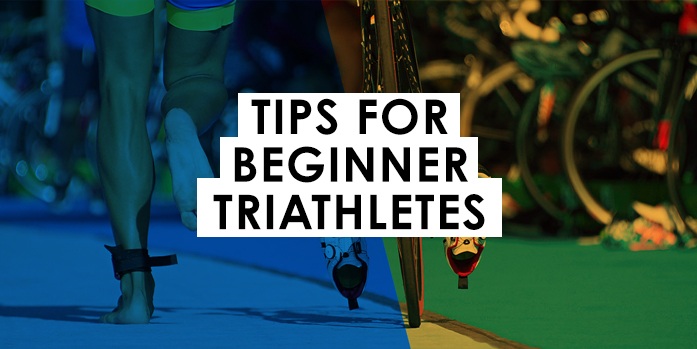Triathlon can be an intimidating sport. Not sure where to start? Let us give you some pointers. This can be a helpful list for beginners or first-time triathletes.
1. Don’t give up!
There are many components to triathlon—it can be overwhelming. Between finding the right equipment, training for the race, settling your nerves before race day, these are just a few factors that contribute to feelings of immense stress when just starting out. The important thing to remember is DON’T GIVE UP! Keep in mind the reason why you began in the first place—whether that be to get healthy, cross something off your bucket list, and everything in between. Hold that reason close as you embark on your triathlon journey and use it as a source of motivation to keep going. It won’t be easy, but it will be worth it.
2. Start Simple
The training regiment can be daunting for newcomers. Keeps things simple to avoid becoming overwhelmed. There are three things that you need to do when training for a triathlon: swim, bike, and run. That’s it! All you need to do is get out there and swim, bike, and run at frequency you find appropriate. Go out there and enjoy doing these activities—that’s how you build that love and passion for the sport that will propel you forward. A good starting point is to swim, bike, and run twice per week. Go from there and add increase incrementally from there. There is no replacement for a good, solid foundation in this sport.
3. Proper Nutrition and Hydration is Crucial
A huge component to success in triathlon is implementing proper nutrition and hydration measures. From pre-race meals and on-the-course hydration to proper caloric intake during your training—the importance of putting the right things in your body cannot be emphasized enough. Do some research on meal plans and supplements you can utilize to facilitate high-performance during training and on race day. Try a few different nutrition and hydration supplements and take note of how you feel while doing your training. Experiment until you find the right products and mix for you.
4. Make Sure You Have the Right Gear
Having the right equipment is a huge benefit when participating in a triathlon. From apparel, proper footwear, hydration tools, bike + maintenance tools, it all adds up to a successful performance. Make sure you have all the gear you need during your training and for race day. Here is our tentative list of recommended items:
- Tri Suit or Two-Piece Kit
- Swim Cap
- Goggles
- Swim Buoy (for training)
- Tri or Road Bike
- Helmet
- Flat Kit
- Water Bottle Holder(s) + Water Bottle(s)
- Bike Computer
- A Great Pair of Running Shoes
- Hip Pack
- Nutrition + Hydration Supplements
- Body Glide or Similar Anti-Chafe Product
- Sunglasses
- Race Belt
- Sunscreen
- Transition Bag
Visit Bikes Palm Beach to get everything a beginner triathlete needs to take on their first race.
5. Don’t Let the Swim Stress You Out
The swim is often the most difficult element of triathlon for beginners. Take your time and remember to breathe once you get in the water. Don’t worry about trying to get out in front—especially if it’s your first race. Focus on getting to transition, you have more race to tackle!
Join our Open Water Swim Group during the spring and summer months!
6. Make a Packing List
There is nothing worse than getting to the race and realizing you don’t have everything you need. Take the time to create a race day checklist detailing all essential items that you need to bring with you to the race. Have a seperate list for the items you need to have with you at the start line. Race day nerves can cloud your thoughts, so it’s helpful to have a list of items that you can check off.
7. Get Involved
Now that you’ve become a triathlete, it’s time to start connecting with others in this lively community of athletes. Find group events in your local area that you can participate in—including group rides, group runs, training groups, etc. Part of the fun is building new relationships with others who share a common interest.
Check out our group activities and events. We host triathlon training groups and workshops.

